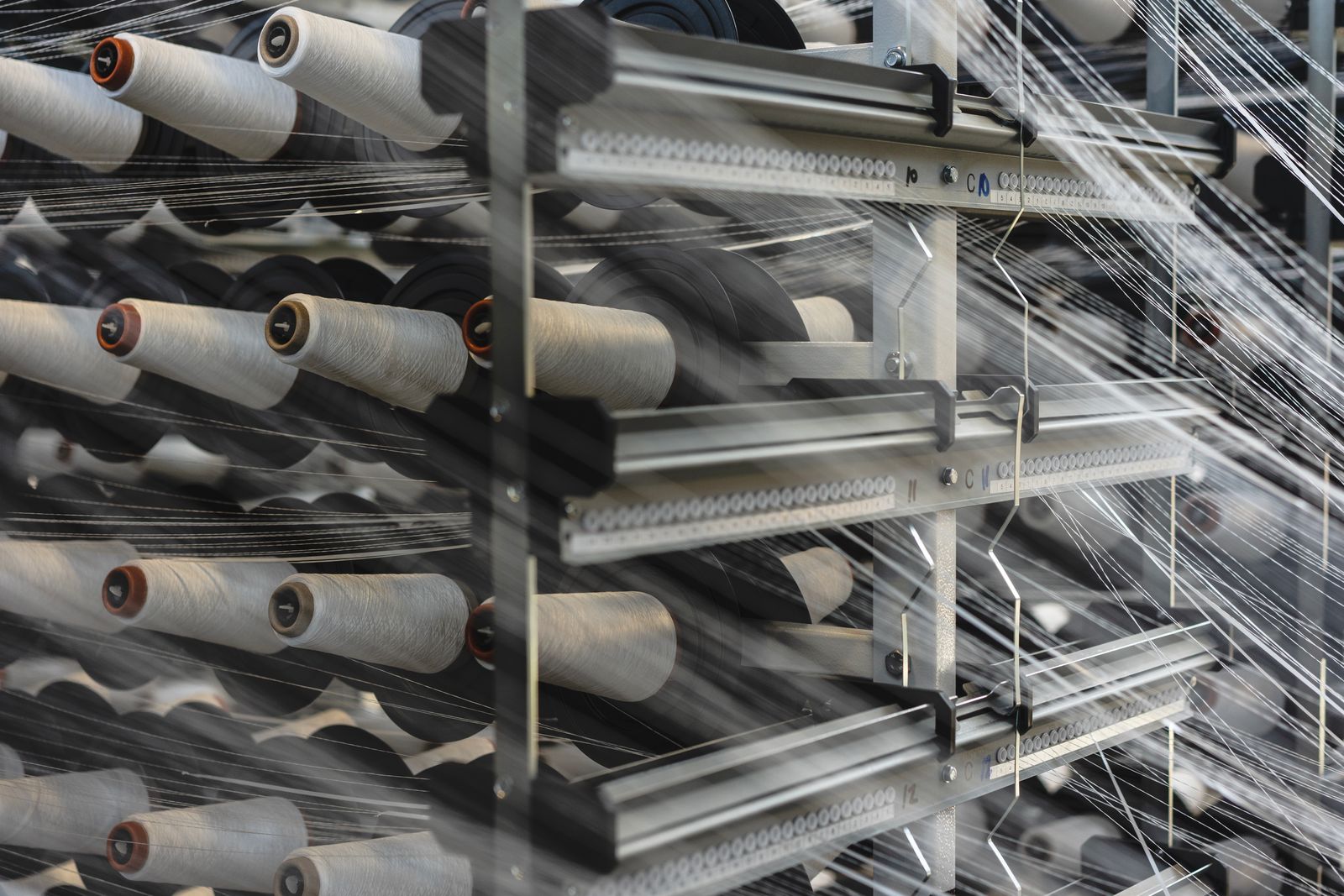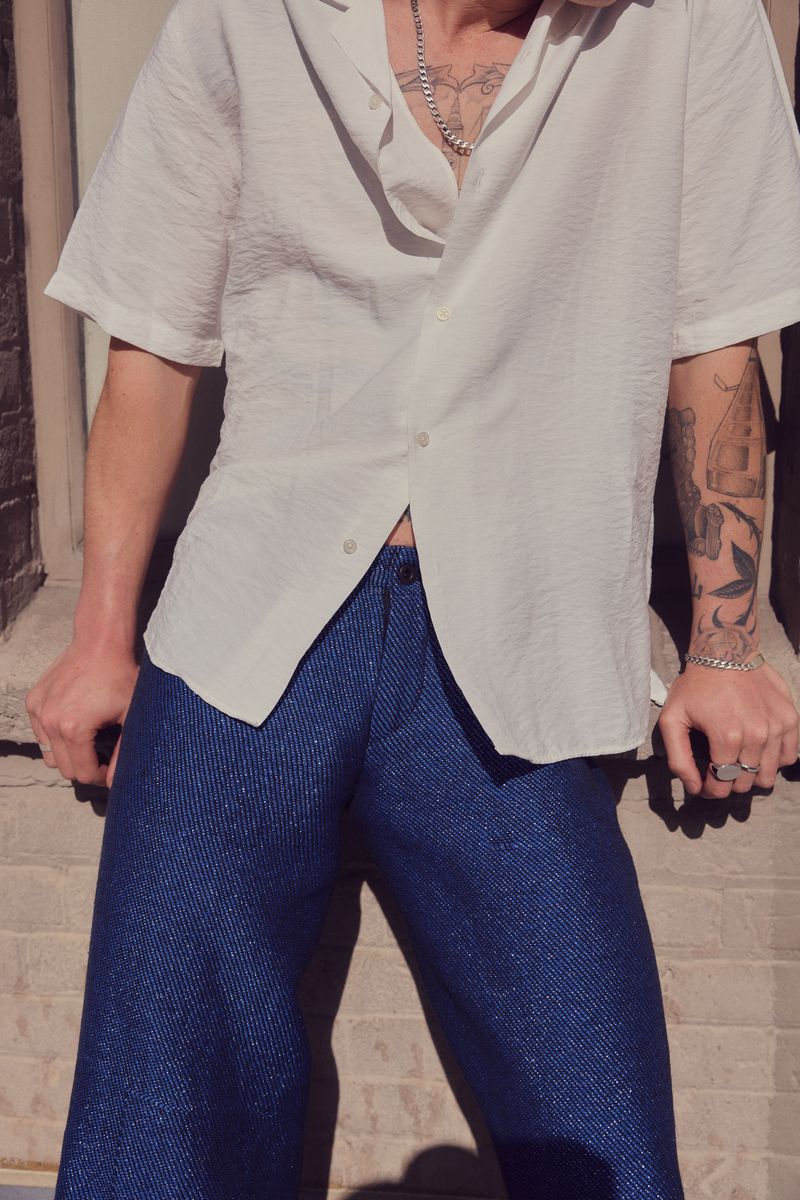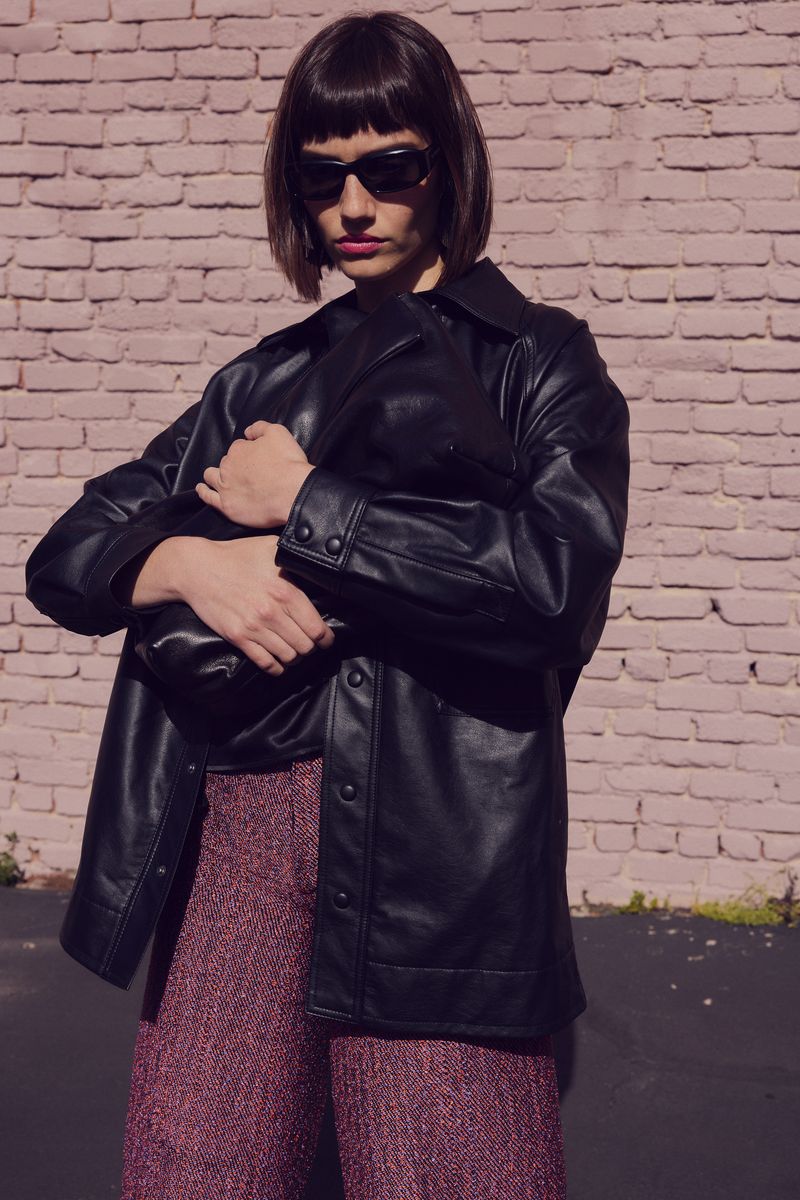
The New Status Quo? | Evolution of Unspun’s Sustainable Business Model
Created with the intent to reduce industry waste, Unspun – a technology infused textile production company – is challenging conventional ties between consumers and their clothing. Here, we spoke with Unspun’s founding members to discuss their sustainable approach to fashion, as well as the industry more generally.
Shadow to the industrial push for sustainable practice, an exciting evolution of new business models – all with the intent to restore environmental integrity – has begun to take form. Many fashion brands are looking towards technology as a tool through which to craft sustainably – we have seen applications that allow you to track your clothing use; 3D printing softwares that generate zero-waste; machinery that spins human hair into yarn.
One brand we have been particularly excited about is Unspun – a textile production studio that integrates innovative softwares with smart methods of apparel production. Deriving its practice in augmented reality technology – Unspun has developed an interactive experience for customers, where clothing is custom made, tailored to their unique specifications, stringing a sustainability narrative that feels modern and yet futuristic, practical and yet fashionable.

We had the privilege of talking with Unspun’s founders about the inspiration for the startup, current collaborations, and the future of sustainability in the fashion industry more generally.
What was the inspiration behind unspun’s launch? Can you tell me more about your team’s mission?
Unspun is a fashion and technology company on a mission to reduce waste in the fashion industry—and beyond—by revolutionizing the process of garment production. Clothing and apparel is one of the highest waste industries in the world. After looking around and realizing that there weren’t other companies out there genuinely focused on regenerative, sustainable, responsible, and intentional manufacturing, we decided to build one. Unspun was founded by Beth Esponnette, Walden Lam, and Kevin Martin. Our goal is to reimagine and disrupt traditional supply chains and order volumes, decrease transportation and lead times, and bring clothing brands—and their customers—closer to the source and production of the goods they wear and make.
Can you tell me more about the actual process of design and production? How does digital data transform into a wearable piece?
At Unspun, we recognize that every piece of fabric and all garments are made from finite resources that should not be wasted. This is why we have pioneered Vega™️, a first of its kind 3D weaving technology which efficiently transforms yarn into garments. Our Vega™ machine enables production in micro-factories and eliminates multiple traditional manufacturing steps—most of which contribute to high order quantities, long lead times, increased transport emissions, and excess inventory waste. Instead, Vega™ goes directly from yarn to garment. Vega™ allows brands to cut production lead times from 6+ months to as little as one week, which allows them to be more accurate in their orders and reactive to supply and demand. Not only does it significantly shorten the supply chain and reduce the resources used, it also eliminates almost all cut-and-sew waste. For the weaving experts out there, a major benefit of Vega™ is also that we can weave directly from creels and do not need to use warp beams, which eliminates an entire step in the weaving process.
What are the sustainable implications of unspun? How might the fashion industry benefit from mobile body scanning and other made to order production processes?
With Vega™, some garments can be made to order and leverage our custom fit technology, while other garments can follow the existing size ranges of the brands that we work with. One great thing about Vega™ is that it can produce garments for every body shape and size, benefiting the fashion industry by ensuring inclusivity as well as having the potential to save emissions generated in the average supply chain by skipping the 2D fabric making and the spreading, cutting, and sewing of garments. It eliminates the need for large order quantities and inventory, and also reduces lead times and transportation emissions and enables on-demand, zero-inventory production.
Unspun uses technology to develop zero-inventory apparel with minimal waste. We want customers to have access to the best possible products available, that are made in the best way possible. Our vision for the future is circular: we hope that when a customer is done with an article of clothing, they’ll be able to return it to be either rewoven into another product or passed onto someone else to be rewoven to their liking. In the near-term, unspun will continue to expand its microsites—or small-scale factories that house 10-20 Vega™ machines—all over the world. With these microsites, unspun will decentralize fashion production, limiting greenhouse gas emissions from shipping, and putting the power back in the hands of individuals.
How has unspun been received by the public? Have you seen a shift towards an acceptance of made-to-order fashion?
The textile industry is mature and well-established, and its slow adoption of new technologies has hindered progress in addressing fashion’s impact on climate change. However, innovation is crucial in our current environmental crisis. Unlike the existing technology, our 3D weaving technology offers faster and more efficient production methods, offering the potential to revolutionize the textile industry.
We make clothing with purpose: it should immediately have a loving home. unspun starts with a specific customer before it makes a product, as opposed to mass manufacturing against projected hypotheticals or trend forecasts. A solution that is simultaneously without inventory, without waste, custom-fit, and circular is exciting and revolutionary. It’s an incredible concept that more and more people are accepting and welcoming into their wardrobes.
We saw a recent collaboration between unspun and H&M. What other companies do you partner with? Do you think these collaborations between sustainable and faster fashion leaning brands can benefit the industry in the future?
Unspun has collaborated with H&M’s Weekday line, as well as PANGAIA, Collina Strada, Eckhaus Latta and Walmart. We have collaborations with other forward-thinking fashion brands in the works as well, but nothing we can share yet! Because unspun isn’t limited by minimum orders or lead times, we have the flexibility to support a variety of collaborations across categories and consumer markets. We can easily make one-off products because our technology opens up mass customization.
Our first products using Vega™ debuted on the runway in September 2023 at NYFW with fashion label Eckhaus Latta’s SS24 collection. This innovative collaboration marked the first time a 3D-woven pants was seen on a major runway. With Vega™, fabric scraps are essentially eliminated from the production process as Vega™ doesn’t require fabric to be cut and then sewn together. Coupled with localized small batch production, our production method enables an almost zero-waste manufacturing process. Two of the styles from the collaboration, Eckhaus Latta x unspun Wide Leg Jean & Eckhaus Latta x unspun Ultra Wide Leg Jean are available on our and Eckhaus Latta’s websites for purchase.
Unspun and Walmart’s collaboration aims to localize parts of Walmart’s supply chain by leveraging unspun’s proprietary 3D weaving technology. This collaboration paves the way for the production of locally made garments, which aligns with the growing demand for domestically sourced products. By implementing this technology, Walmart and Unspun envision a future where stock levels, on-shoring costs, and the environmental footprint of garment production and consumption are drastically reduced.
Overall, collaborating with faster fashion brands like H&M allows us to better educate both the industry and the consumer on how tech can improve sustainability in consumption.
What new projects are you working on now, can you give us a sneak preview?
Right now, our Eckhaus Latta and Walmart collaborations are the only partnerships we can publicly share. However, we have a few collaborations lined up that will be announced soon, we can’t wait to share these with the world!


Highlight Image:
© Jason Leung via Unsplash
+ Words:
Tori Palone
Luxiders Magazine








